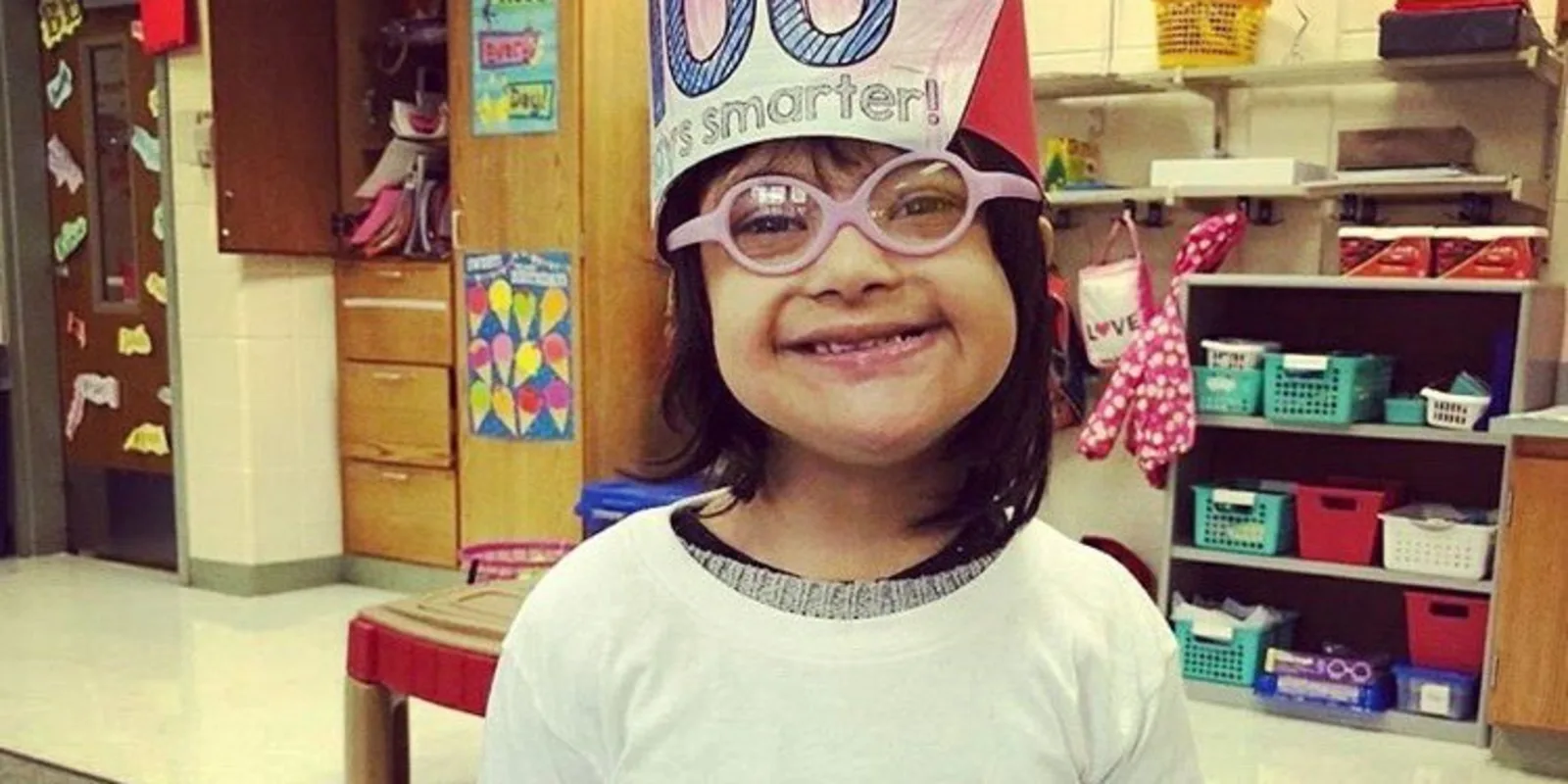
What does it feel like to raise a child with special needs? I wonder every time I walk into a room to see any child with a condition that makes them special and different from other children. Throughout my years as a physician, as I have taken care of such children and learnt about their struggles, I have gained a deep sense of admiration and respect for their parents and guardians. In the doctor’s office, we only usually talk about the well-being of the child, to create perfect plans for coordinated care, education and health, but rarely do we get time to ask the parents the toll this takes on their lives.
Recently I got a chance to talk to one such mother, and I found it extremely useful for myself to gain insight into a parent’s world for a child with special needs. I believe it may be useful for other clinicians who work with special needs patients, too. Zenith is a beautiful six year old with Down’s syndrome; here is what her mom, Sehrish Rashid, had to say about their experience.
1) How did you first find out about the condition of your child, and what was your reaction to it?
I found out about her condition within 2–3 days of her birth. Initially, the doctors examined her physically and said they’d send her blood work to confirm the trisomy. Until the blood work came back, I was confused and rather in denial. I used to keep looking at her face and features and would think to myself that they might be mistaken because, to me, she looked like any other child.
2) If you could change one thing that a physician said to you regarding your child’s condition, what would it be?
When she was born and diagnosed, her genetic counselor told me that she might not be able to solve problems on her own and might not be good at mathematics, but she also said that it varies from case to case. I personally found her way of explaining very discouraging because it made me more depressed than I already was. What she said was true, but it could have been better had she explained “what to expect” from a mother’s point of view. She talked as if my child, along with all other kids with disability, were just numbers or “cases.”
3) What are some of the challenges that you face in raising a child with special needs?
Dealing with Zenith’s temperament is the biggest challenge I’ve faced so far. But I also would like to acknowledge that in last six years, I’ve managed to be able to figure out her reasons of acting in a certain way, and it has also helped me to calm her down according to her needs.
4) When you first started taking your child to the doctor, what were the initial barriers you faced in accessing health care?
There weren’t any barriers in accessing healthcare, per se. But, because of my personal denial, depression and lack of knowledge, it took me three months to realize that she needs a lot of therapies and other medical help.
5) What therapies does your child get on a regular basis? And which therapies have helped her the most?
Occupational, physical, and speech therapy. She’s been getting OT from when she was three months old, so OT is something that she’s got the longest ,and it has helped her the most as well. From her OT, she’s learned things like fine/gross motor skills, to the ability to be consistent.
6) What are some of the obstacles that you face to provide your child a good education catered to her needs?
The previous school district had limited resources because of which they didn’t manage to create an IEP well-suited for Zenith’s needs. I had to make a lot of efforts to get her as inclusive of an education as possible. I had multiple meetings with her previous school, but they still insisted on keeping her in a Life Skills Class. So, eventually I moved to another city with a better school district, and now I believe her IEP is promising.
7) What are your child’ strengths? What difference have you seen in her since the initial diagnosis?
She’s much more capable of doing things on her own. With the help of her OT, she gained an impressive amount of muscle strength (she used to be floppier before). She is very determined, and she doesn’t quit easily. She has an extensively-increased vocabulary now and is equally bilingual.
8) What struggles does your child face daily?
Taking care of herself is still a task for her. She’s not potty-trained yet. And she still doesn’t like the idea of self-feeding. But I personally feel that these things have more to do with her mood/inclination than anything else. If she feels like it, she does it.
9) Do you have other kids? How is their care affected by the fact that you have a special needs child?
I have a son younger than my daughter. Because I’ve always been busy and focused on Zenith, I feel like I didn’t pay much attention to my other kids as much and whatever he learnt was mostly things that he picked up on his own. His healthcare has not been really affected, but emotionally he has learnt to be more patient and considerate towards his sister quite naturally.
11) How has having a child with special needs affected you as a person and your personal life?
It has changed me 360 degrees. I’m a very different person as compared to who I was before having my children. Zenith has made me much more patient, understanding, and compassionate. She has taught me how there are multiple ways of doing things, and forcing yourself or others isn’t one of them. Also, she has helped me slow down and have a new perspective about life and people. She has taught me to be persistent and deal with all the struggles patiently. She has taught me to try repetitively without losing my temperament. Most of all, she continues to teach me much more than I do for her.
12) What fears do you have about your child’s future?
The biggest fear that I have for her is the inability to be independent. I really want to, and work every day to, help her reach a level where she doesn’t have to depend on anyone for daily chores and self-care. Whenever I see my younger son loving and taking care of her, it fills my heart how much he cares for her, but it also makes me think at the end of the day that he didn’t sign up for this either. That’s why my biggest fear and goal is to make Zenith as independent as possible, to function in her life on her own.
13) If you had to go back and change one thing that you did to raise your child, what would it be?
If I could go back, I’d try to make her more self-sufficient earlier. Since she was our first born, and has special needs, I feel we pampered and underestimated her abilities more than necessary. On the other hand, I also like to tell myself that it wasn’t just her who was learning; we were also a part of the journey as new parents, so we tried our best.

Saba Fatima, MD, originally hails from Karachi, Pakistan and is currently training as a pediatrics resident in Philly. She has a passion for children, and writing and hopes for a world where no child has to die because they cant afford to live. She is a 2018 Doximity Scholar. She tweets @SabaFatimaAli and blogs at https://sabafatimaali.wordpress.com/.






